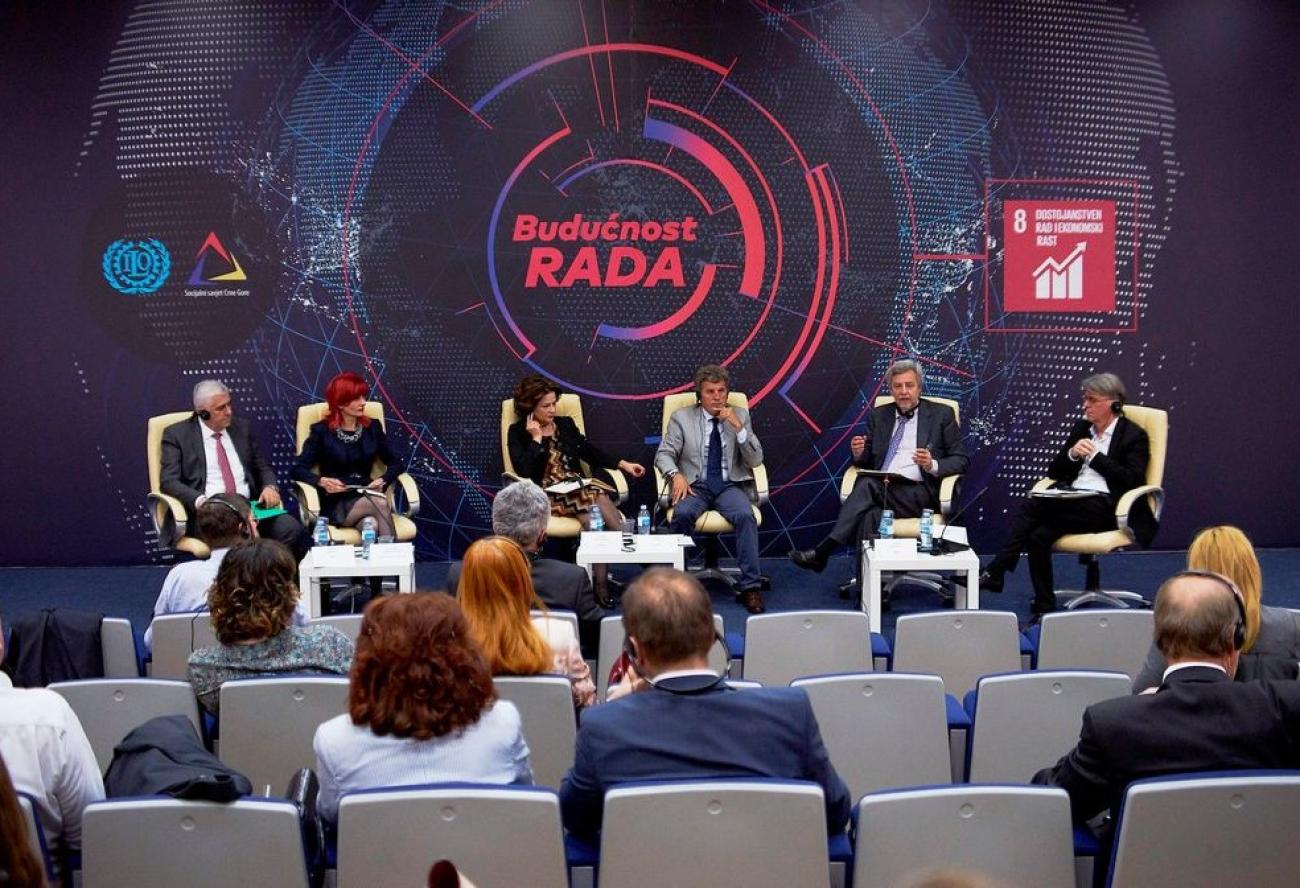Future prospects of work in the era of growing uncertainties on labour market was at the heart of the Conference “Future of Work” organised by the International Labour Organization (ILO) in Montenegro and National Social Council. The conference, dedicated to the International Labour Day, gathered key national stakeholders in the area of work and employment, including representatives of the Government, unions, Employment Association, academia and civili society. The participants agreed that volatile political and economic developments have enormous influence on labour market, thus making the social justice a matter of priority concern.
“Rapid technological development, population increase and accelerated urbanization strongly affect labour market. Additional efforts are needed for creating working opportunities for future workers,”
Nicolas Niemtchinow, Assistant to Director General of ILO.
The conference particularly focused on perspective of young people in the disruptive labour market.
“Out of 23% of the unemployed in Montenegro, 40% are young people,” said Fiona McCluney, UN Resident Coordinator in Montenegro, highlighting that this was an indicator of economic inability to provide new workplaces. She reminded that decent work, as the Sustainable Development Goal 8, is important part of Agenda 2030, a vision of a better world which entire world agreed on. “To make this vision come true, to ensure decent work for all, we must look at the long-term drivers of change and we need to make societies resilient to upcoming changes and challenged,” McCluney concluded.
"We have to be guided by the principles of decent work for all”
Kemal Purišić, Minister of Labour and Social Welfare of Montenegro
According to ILO, although the world prospered significantly, the growth rate is still below the period prior to 2008, with the global unemployment amounting 200 million.
„Decent Work Country Programme for Montenegro through enhanced tripartite social dialogue, recognizes strategic priorities and results to be achieved, and reviews economic and social context of the country, employment, social security, labour conditions, occupational safety and health“. – Antonio Graziosi, Dierctor of ILO DWT/CO-Budapest.
Kemal Purišić, Minister of Labour and Social Welfare of Montenegro said that global economic crisis, accompanied by the process of the on-going transition in Montenegro, are some of the primary causes of the challenging issues such as pay gap, poverty, lack of protection at workplace and informal economy. He stated that tripartite forum is the only way to address these problems.
"To ensure decent work for all, we must look at the long-term drivers of change and we need to make societies resilient to upcoming changes and challenged"
Fiona McCluney, UN Resident Coordinator in Montenegro
“Such challenges on the labour market can be tackled only through the social dialogue between Government, employers and unions. We have to be guided by the principles of decent work for all,” concluded Purišić.



